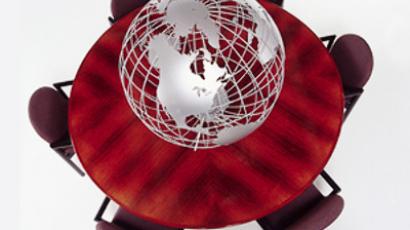Shaping the future, BRIC by BRIC
The time has come for Brazil, Russia, India and China to play a central role in a new global economy. That was the message of the debut summit of the so-called BRIC group, hosted in Yekaterinburg this week.
As the BRIC countries strengthen their positions, other emerging markets are looking forward to joining the alliance in order to build a stronger global economy.
Brazil, Russia, India and China are the world's biggest emerging markets – and the financial crisis has only strengthened their resolve to play a key role in shaping the financial world.
“I think it is certainly a beginning of the group, more for consultation and co-ordination of political positions. But I think we are a common-interests group so there are many things in common that we can explore in terms of co-operation,” proclaimed Brazil Foreign Minister Celso Luiz Nunes Amorim in an exclusive interview to RT.
Hopes are high, and the leaders say their very first summit proved an even bigger success than they'd imagined.
“I think that the boost of development of the BRIC countries – Brazil, Russia, India and China – will continue to have a strong impact on the world’s economic development, industrial capacity and global security. The BRIC summit must create conditions for a much fairer world order and solve global problems” proposed Russian President Dmitry Medvedev.
It seems not only member states share this enthusiasm. Goldman Sachs analyst Jim O'Neill, who originally coined the term BRIC back in 2001, also believes the alliance will flourish, while the world economy contracts, and other countries are already allegedly looking to join.
“I've heard various proposals on who might join BRIC. Usually the countries mentioned are South Africa, Mexico and Indonesia. I think that only one country is more or less seriously considered – this is South Africa, which actually could add some value to BRIC, and some people even joke that then it would actually become BRICS which we often say instead of BRIC,” commented Ivan Safranchuk, political analyst of the Moscow State University of International Relations.
But the media are placing Indonesia as the top contender, after its presidential election in July.
In the meantime, the four countries express discomfort with Washington's financial stewardship – and the world's dependency on the US Dollar. Hence there is a proposal to turn towards national currencies or create a new reserve one.
“A supranational global currency for the world is a really complicated issue. Unity is needed on this, and more countries involved. We have repeatedly spoken about this in the framework of the G20, that through a system of the International Monetary Fund – considering the amount of money the IMF is distributing – we will be witnessing the emergency of a supranational currency used for international settlements,” said Dmitry Medvedev.
This was BRIC's first official get-together, with more already planned. But the main goal seems to have been to show that there is more cementing BRIC countries than just ambitions.













